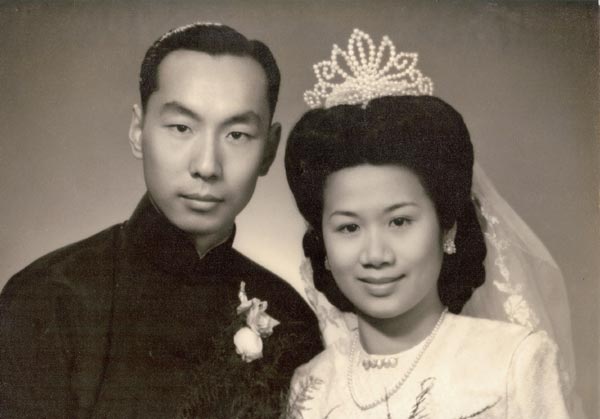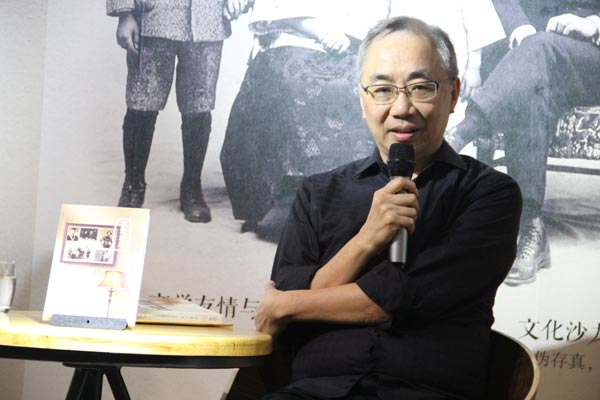Source: China Daily (5/20/15)
The friends of Stephen Soong
By Liu Zhihua(China Daily)

Roland Soong has coauthored The Soong’s Living Room: FromQian Zhongshu to Eileen Chang, a biography of his father, Stephen Soong.
In 1995, writer Eileen Chang (Zhang Ailing) was found dead in her apartment in the United States.
To many people’s surprise, when Chang’s will was read it was discovered that the author had left all her possessions to Hong Kong couple Stephen Soong (1919-96) and his wife, Mae Fong Soong (1919-2007).
The will made celebrities of the couple, but Stephen Soong was already well-known in literary circles by his various pen names, such as Lin Yiliang. He was an accomplished translator and literary critic, and had close relationships with several eminent writers and critics in modern Chinese literature, such as Qian Zhongshu (1910-98), Fu Lei (1908-66) and Wu Xinghua (1921-66).
Now the couple’s son, Roland Soong, has coauthored a book, The Soong’s Living Room: From Qian Zhongshu to Eileen Chang, a biography of Stephen Soong.
A series of serialized interviews and articles in the Guangzhou-based newspaper Nanfang Daily in 2012 inspired Roland to publish the book.
Roland is already well-known to fans of Chang because he became the executor of Chang’s possessions after his parents died. He is also famous for his influential English-language China-focused blog EastSouthWestNorth.
The book focuses on Roland’s family history, his parents’ lives, and Stephen Soong’s education and activities related to literature, film, and his friendship with Qian, Fu, Wu and Chang.
It is based on Roland’s memory, public information and manuscripts and private correspondence between Stephen Soong and friends.
It reveals details of Stephen Soong’s family background, education, personality, marriage and literary activities. It also carries a large quantity of photos, manuscripts and correspondence that have never before been seen in public.
It is a pity that Wu’s talent and life was wasted in social turbulence, and his achievement is undervalued, Roland notes.
As for Stephen Soong, Roland says: “My father did not just spend all his time befriending famous writers and scholars.”
His father’s first priority was to feed his family. He also was an accomplished writer, literary critic and translator, and contributed to the development of the Hong Kong film industry.
Stephen Soong was born in Shanghai in 1919 to a wealthy family from Wuxing, Zhejiang province. His father Song Chunfang (1892-1938) was a famous playwright, one of China’s first scholars of modern plays and had a large collection of foreign books.
Stephen Soong received the best education a young man could get in China at that time. He went to college in Yenching University at age 16, studying comparative literature.

Stephen Soong (1919-96) and his wife, Mae Fong Soong (1919-2007). [Photo provided to China Daily]
In 1941, Stephen Soong started suffering from respiratory and lung disease. When his health condition worsened in 1967, he quit his busy job in the movie industry and later worked as assistant to the president of the Chinese University of Hong Kong.
The work in the university was not demanding. He entered a productive period writing literary works and criticism. He also initiated several literary and translation magazines, including Renditions.
In 1996, he died of bronchitis in Hong Kong.
Chen Zishan, a prominent critic and an expert on Chang’s work, says the book is written with a close attachment to the subject, but is also objective.
He praises the book as an interesting read and an important research document.
